*Fiction by Danielle Watkins*
The season was wintertime. The night, silent as the snow that fell into shimmering piles on the ground, seemed calm. Standing by the door, Jenna, wearing her mother’s winter coat and gloves, wasn’t planning on going far. Just to the giant tree that felt like Christmas. To sit in the biting cold, the unmerciful wind licking at her dry skin, seemed like a relief.
Yet, she couldn’t bring herself to open the sliding-glass door. Her shaking hand hovered above the doorknob for a long time and hot tears blurred her vision. But then she saw something scampering in the fresh snow, defiling its purity with tiny footprints. Finally looking up at her reflection in the door, Jenna saw the girl once again. The girl stared back with frightened, unblinking eyes, slowly turned around, and trekked into the peaceful snowfall. Her ghostly shadow left loud footprints that eventually faded away into nothing.
Jenna didn’t want to be nothing.
******
The monster came slowly. It crept into the sinews of Jenna’s mind, telling her what seemed like truths, “That doorknob isn’t safe. You shouldn’t touch it.” It was easy to ignore the voice at first, but eventually, the voice materialized into a creature that controlled her every action.
It came when Jenna was in fourth grade. She and her best friend, Samantha, were romping around in the snow during recess. A bunch of boys were playing King of the Hill; one of them ripped off his coat and proclaimed he didn’t need it in the winter, only in the summer, because he was a man now. Everyone just laughed, but not in a mean way. It was funny, especially when the teacher came over and tried to climb the hill after the ‘man’ refused to put his coat back on.
Samantha grew bored and asked, “Want to make a snowman?”
“Oh, sure,” Jenna replied, “but after I show you how many husbands I have!” She whipped out her glove, which was a sickly purple with several painted rings sewn around the fingers.
“Is he one of them?” Samantha giggled and pointed to the boy on the hill.
But Jenna wasn’t listening. Where was her other glove? She was sure she had it. Frantically, her eyes scanned the snowy field; it was too bright and the light hurt her eyes. She shielded her eyes with her naked hand—it only reminded her of what was missing.
“What’s wrong?” Samantha asked concerned.
Jenna couldn’t breathe. She instinctively felt for her scarf wrapped around her neck. Was it too tight? Why couldn’t she breathe?
Gasping, she looked up. When had she fallen? She lifted her hands toward the sky; they became two different shadows. One dark and concealed, with fingers spread wide. The other bright and vulnerable, limp against the powerful star we call the sun.
******
“I want those!”
Grandma was taking Jenna shopping for her sixth birthday at a candy store attached to an antique store. They sold vintage candies, like Razzles and Lipstick Taffy, as well as newer brands, like Reese’s and Skittles. The antique store varied from intricate wooden boxes to Red Sox memorabilia. Jenna had pointed to the neatly stacked Milky Ways; she liked them because they were simple. Just chocolate and caramel. Nothing fancy, just sweet, gooey goodness.
“Okay, honey, but you know you can pick something else out too, right?”
Smiling, Jenna picked up a Milky Way and lead Grandma into the small corridor that connected to the antique store. There were several wooden figurines denoting different seasons and occasions, such as “Christmas,” “Caroling,” “Birthday,” and “springtime.” Jenna especially liked the mother/daughter figurine. The mother clasped hands with the daughter; their patterned wooden skirts flowed in the imaginary wind. Then, a pair of gloves caught Jenna’s eyes. They were a royal purple and they were bejeweled with small faux rubies. The jewels were supposed to represent rings, one on almost every finger. Jenna instantly thought of the Disney movies she watched so often. What Disney princess could claim four princes? Perhaps Snow White, but maybe the dwarves don’t really count.
“I want these gloves, Grandma! Is that okay?”
Grandma smiled and said, “Of course.”
Jenna smiled too.
On the way home, as Jenna happily chewed on her Milky Way, she didn’t hear the missed call from the doctor on Grandma’s flip-phone and she didn’t notice the sadness in Grandma’s eyes.
******
The cluttered dollhouse bothered Jenna, so she began to organize the house by room. Her hand hovered over the bedroom, hesitated, and then moved toward the kitchen. The kitchen was easier to clean. Sure, it could get extremely messy—eggshells broken on the floor, dirty dishes in the sink, empty cereal boxes on the counter—but it could always be fixed. The bedroom, and those who inhabit it, can usually leave. Unless you’re sick and stuck in bed. Unless you fall asleep forever. Unless you’re Grandma.
“Does that bother you?”
Jenna turned around and looked at Dr. Hays. She wondered if he grew up on a farm and if he had cows that mooed at bales of hay.
“I just like to organize the rooms,” she responded, “because my dollhouse at home is neat. Except for the Play-Doh stuck in the mailbox, but that’s because my brother, Cam, made me do it.”
“I see. Well, we’re going to have your mom come in now so we can all talk together.”
“Okay!” Jenna exclaimed as she turned back to the slowly improving dollhouse.
After Dr. Hays talked to Jenna’s mom, he said goodbye and they went on their way. As they were leaving, Jenna saw a boy from her class. His name was Jerry and he always misbehaved during class. One time, he ran out of the classroom all the way to the front entrance of the school. Running past the principal’s office, he broke free and everyone from the classroom could see him sprinting outside. The principal ended up chasing him, heels and all. All of the students became distracted and watched in envious fascination of Jerry’s escape. No one wanted to be like Jerry, they just wanted to be free.
“Hi Jenna!”
Blushing, Jenna waved hesitantly. Why was she in the same doctor’s office as Jerry?
Meanwhile, Dr. Hays’ next patient destroyed the order Jenna worked so hard to instate into the dollhouse, instead leaving it in shambles.
******
When Jenna first stepped into the middle school, she didn’t remember it. She was sure she didn’t want to remember it because she knew she had, in fact, been in the school before.
It was a private tour offered to her and Mom by the principal. Jenna hadn’t gone to the sixth grade orientation because she wasn’t sure if Samantha was going. And if Samantha wasn’t going, well, then there was no point. Although the middle school combined all four elementary schools and there were going to be different kids there, Jenna didn’t want a repeat of fifth grade. There were so many days she would come home crying to Mom, who would try her best to comfort Jenna but didn’t understand; it became easier to count the good days because there were so many bad days—normal days—and out of the ordinary good days were easier to recall sometimes.
The first day of school. Jenna got off the bus and looked up at the stout brick prison they called middle school. Suddenly, she longed to get back on the bus and sit alone in order to look out at the world passing by through the window. Anything could happen there. If it was raining, she could draw smiley faces on the glass. If it was snowing, she could countdown the days until Christmas and imagine making a snowman outside. If it was sunny, the possibilities were endless. Jenna could picture herself frolicking around outside, waving goodbye to the monster as it stayed behind on the bus.
Turning around, Jenna hoped to see the monster. But it wasn’t on the bus. She could suddenly feel a weight in her backpack. At her locker, Jenna neatly put her new Lisa Frank folders on the top shelf, keeping some for the first three classes with her. She noticed that the girl next to her threw all of her books and folders onto the floor of the locker. Jenna desperately wanted to fix what the girl had so carelessly done, but resisted. Focusing on her own locker, Jenna hung her backpack on one of the hooks, making sure the back of the bag faced the right side of the locker. The weight remained, though. Somehow, she had hoped it was just the backpack—that she was just feeling the heaviness of her folders and binders like anyone else would. Like a normal kid.
To get to her first class, Jenna had to go through the stairwell. She saw students pushing doors open, some holding the door for their friends, others rushing through and bounding up the stairs like wild horses. It was a tunnel that lead upstairs where Jenna would be further away from the main entrance.
“I can always come down. I have classes downstairs too.” Jenna reminded herself, “Even if I am just going to the bathroom, I can always come down.
Taking a deep breath, Jenna approached the ominous tunnel, thinking only of her descent later that afternoon. But when she got to the top, to the door, two girls had just entered and were coming downstairs.
“Oh no.” Jenna thought. The girls were gleefully gossiping and did not—no, could not—know Jenna’s predicament. As she slowly approached the doors, wondering how long she would be standing there waiting for someone to open them, someone came through and held the door for her; Jenna thanked her and headed upstairs.
The weight she had felt earlier bothered her most of the morning. When her section went to library class, Jenna froze before she could enter the library. There in the library were the dull pastel chairs they had in her elementary school’s library.
“Don’t sit there. Those chairs have germs.” The monster hissed at her.
“There’s no other option. There’s no other option!” Jenna grew wild. The only way to calm her down was a trip downstairs to the guidance office. The counselor soothed Jenna and said it was no big deal to use a different chair. The librarian helped drag out an old-looking rickety chair for Jenna to use when she finally returned to library class.
“Why does she get a different chair?” One of the students asked, a bit envious that he wasn’t special enough to receive similar treatment.
“Don’t worry about it, Mike.” The librarian said gently.
Jenna smiled. Maybe this wouldn’t be so bad.
*****
The last time Jenna saw Grandma, she feared kissing her. Although Mom reassured her that Grandma didn’t have a contagious sickness like a cold, Jenna hesitated. This was no cold.
Grandma reassured her, “It’s okay, Jenna.”
Jenna gave her a quick peck and her family left. Deep down, Jenna knew this was goodbye, yet she still feared Grandma’s touch—what kind of granddaughter does that?
*****
Later that week, when they had library again, Jenna dragged out the special chair because she was allowed to do it on her own.
“Why can’t you sit in these chairs like the rest of us?” Richard, a classmate, asked bluntly, but innocently enough.
Jenna hesitated.
“Because she’s a weirdo!” declared Mike.
Everyone laughed. But it wasn’t like the time the boy on the snow hill ripped off his coat. He was trying to be funny then and it worked. Jenna, on the other hand, wasn’t trying to be funny. She was obeying the monster and because of her compliance, she was ostracized.
Just before lunch, after the usual rush, Jenna made her descent. Some boys held the door for her, but when they saw her they screamed, “Weirdo chair girl!” and proceeded to gallop downstairs. Walking faster, Jenna tried to catch up, even though she hated having to rely on them. But it was too late. They had made it to through the door to the meadows. They were free. The gate was closing. Jenna heard echoes of laughter. Shadows swirled on the dull brick walls. The slam of the door closing kept replaying, but the door remained shut. Doe-eyed, Jenna looked upstairs, but no one was there, only the sounds of spite and the images of distorted figures.
The tears were coming now, flowing now. Just like Alice when she failed to open the door to Wonderland, Jenna cried and created a salty waterfall. Streaming up or down, it didn’t matter. Unlike Alice, she would eventually drown.
******
“Do you shake your leg like that because you’re nervous, because it’s a habit, like you were just talking about when you wash your hands?”
Dr. Gordon had it all wrong. Just because Jenna hated middle school and had strange habits to deal with that hellhole didn’t mean every little thing she did involved the monster.
Looking up defiantly, Jenna responded, “No, I like doing this.”
Dr. Gordon chuckled, subtly, but the attitude was there. Her frizzy hair shook slightly as she denied Jenna’s answer with that laugh. If her hair twisted like vines and formed makeshift horns, Jenna would not be surprised. Yet, she still stopped shaking her leg. As if she had anything to prove to Dr. Gordon. But Jenna liked to please people; when people hated her for no reason other than the monster, it just wasn’t fair.
Behind Dr. Gordon’s comfortable-looking chair, there was a dollhouse. It looked like chaos. The father was on the roof, the daughter’s dress was torn, and the couches were askew. Jenna saw a grandpa doll and her eyes scanned each room for his partner.
“That’s for the younger patients,” Dr. Gordon said casually, “but feel free to look if you want.”
“No thanks.” Jenna knew the grandma doll wasn’t there.
******
One summer, when Cam said he was going to run away as child, Mom knew he wasn’t serious. She even packed a knapsack full of snacks and sounded skeptical when she said, “Okay, but I don’t know where you’re gonna go.” Cam defiantly took the snacks and confidently made his way to the end of the driveway. But then he stopped. Slowly, he looked behind him, saw Mom, who was never far behind, and plopped down on the pavement thinking he was still a rebel. Mom would then sit down with him and they would talk. Jenna remembers watching them from her bedroom window, slightly worried Cam would actually run away. But he never did. At the end of the driveway, Cam and Mom would laugh while sipping apple juice boxes and eventually made their way back into the house.
But now Cam was older and so was Jenna. Not feeling particularly rebellious, Jenna still planned on running away, just into the yard. She had to, but she wished she had some kind of choice, or even an epiphany like Cam had. One that told her running away doesn’t solve anything; it could make things worse. But this wasn’t running away, Jenna tried to convince herself.
She was going to kill the monster. Bring it into the cold and leave it there. Jenna thought of all the delicious tortures she could bring upon it. Immobilize it and make it obey her. Make it stay in the cold because there were “germs” inside. There was no other option, she would tell it. And then she would laugh. She would laugh not because she was trying to be funny, but because she was right.
Yet, she still hesitated. She did not even hear her mother approaching.
“Jenna?” Her voice sounded strained. “What are you doing?”
The hot, salty tears were coming, “I wasn’t gonna go far, just to the tree, and then—”
Enveloped in her mother’s arms, Jenna sobbed. She sobbed for Samantha, for Cam, for Mom, for Mike, for all of the doctors and for all of the counselors, and for herself.
But most of all, she sobbed for the monster. She pitied its need to take over her mind, its need to belittle and bully her. Her tears began to cleanse the monster. She could feel weights lifting from her toes and traveling up to her head. Jenna feared her head would explode, just like a watermelon smashing on the ground. But the weight subsided until she could barely even feel it. The monster was still there, but the world seemed as quiet as the snow drifting outside.
Daring to look up into the sliding-glass door, Jenna almost screamed. No longer the ghost of a girl she was before, Jenna saw herself. Amazed, she recognized her own reflection as something familiar, not foreign. With Mom still holding her, Jenna realized she would never understand but she was there. In this moment, Mom was there and she had been there all along.
Then, Jenna vowed to never nourish the monster’s appetite again, a vow she found difficult to keep sometimes. It begged her for food constantly. Most times she couldn’t even hear it. Other times she ignored it. And then sometimes she acquiesced to it.
Determined and refreshed by this new covenant, Jenna continued to gaze at her reflection as she felt the warmth of Mom’s hug. Yet, wrapped up in bed later on, the sadness took over again. But not feeling isn’t human. Jenna wasn’t the monster.

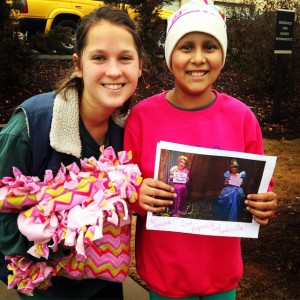 I am very grateful for the opportunity to make a difference in these parents’ lives and happy that my club will be continuing next year, even when I am no longer a student. My club members are passionate about this cause, and I hope more colleges will be inspired to start their own chapters.
I am very grateful for the opportunity to make a difference in these parents’ lives and happy that my club will be continuing next year, even when I am no longer a student. My club members are passionate about this cause, and I hope more colleges will be inspired to start their own chapters.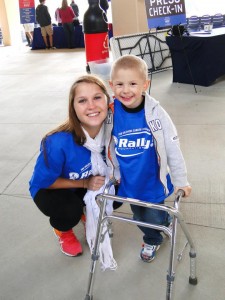
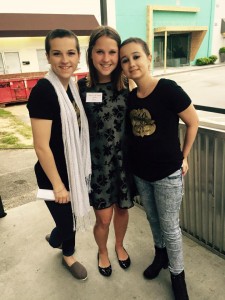

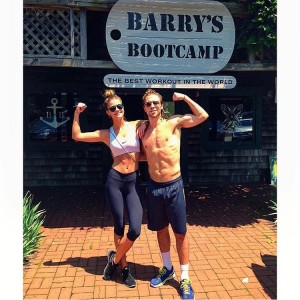 From then on I took it upon myself to embrace those two words again. In doing so, I’ve beyond filled the void that once existed. Over the past few months I’ve done more than I ever imagined. I went snowboarding for the first time, I took up rock climbing, I took a ballroom dancing class, I became a weekday vegetarian, I found an internship outside of my major, I went off-roading at 6,500 ft., met Jay-Z, worked out with a Victoria’s Secret model, and had a cook-off with a world renowned chef.
From then on I took it upon myself to embrace those two words again. In doing so, I’ve beyond filled the void that once existed. Over the past few months I’ve done more than I ever imagined. I went snowboarding for the first time, I took up rock climbing, I took a ballroom dancing class, I became a weekday vegetarian, I found an internship outside of my major, I went off-roading at 6,500 ft., met Jay-Z, worked out with a Victoria’s Secret model, and had a cook-off with a world renowned chef.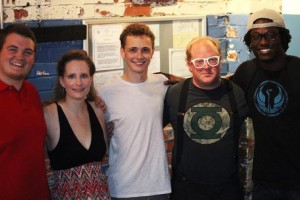 I was depressed from about August until the night of May 2nd of freshman year of college.
I was depressed from about August until the night of May 2nd of freshman year of college.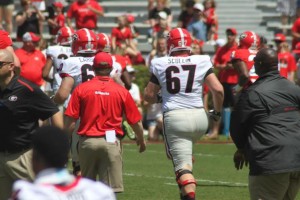 Since my conquering of depression, my life has been on an upward spiral. Everything is going great for me.
Since my conquering of depression, my life has been on an upward spiral. Everything is going great for me.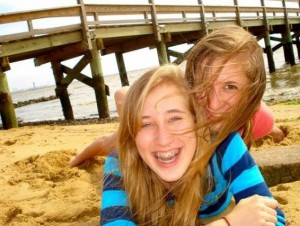
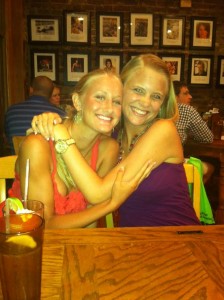
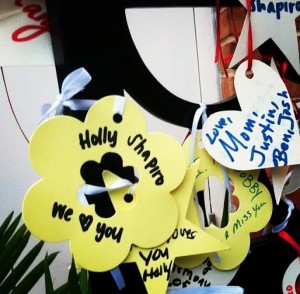 I’m not quite sure how to sum up my experience. I’ll tell you I’ve learned friendship and sisterhood are two different things and it took experiencing a grave loss, along with this absolutely incredible sisterhood to understand that. Tri Delta has helped me heal.
I’m not quite sure how to sum up my experience. I’ll tell you I’ve learned friendship and sisterhood are two different things and it took experiencing a grave loss, along with this absolutely incredible sisterhood to understand that. Tri Delta has helped me heal.

